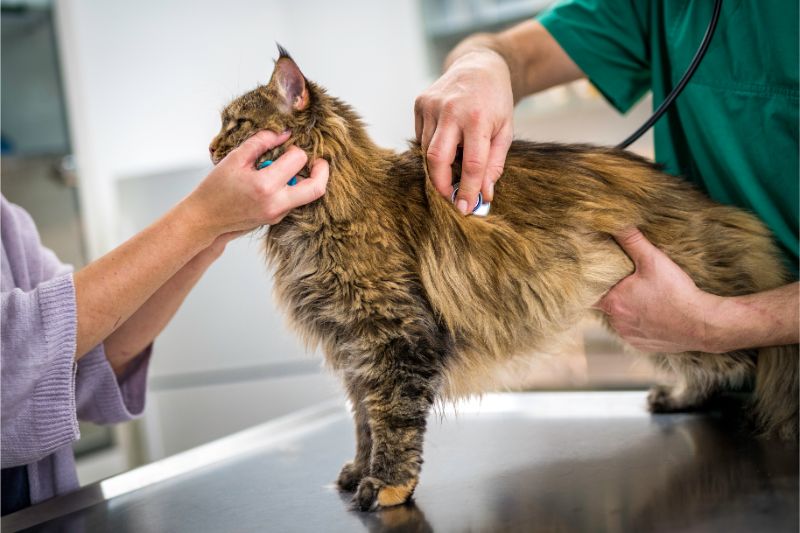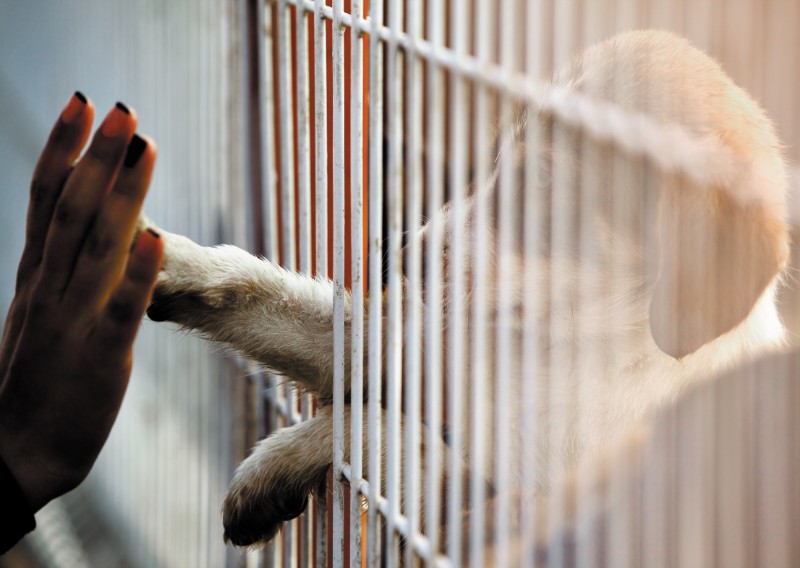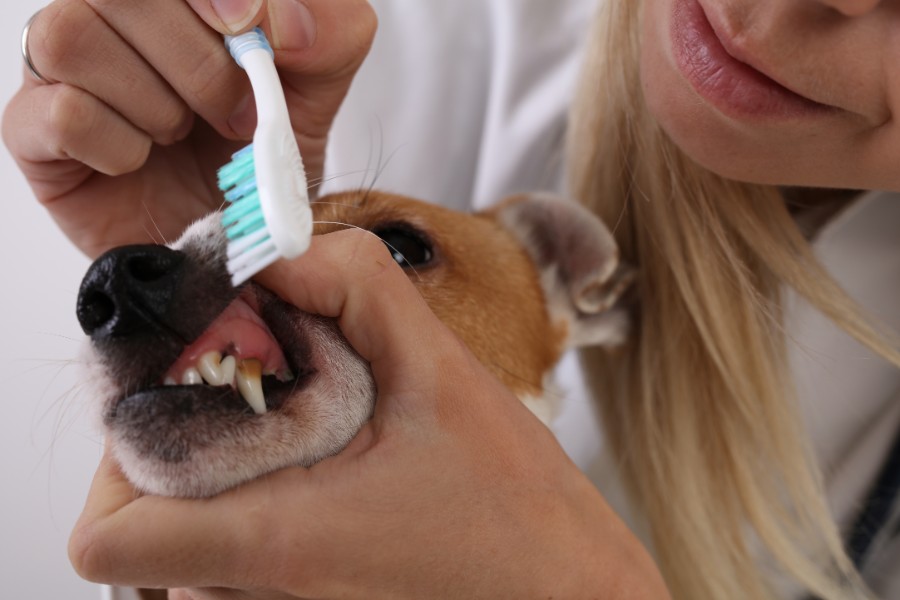Knoxville TN Animal Clinic, Knoxville Veterinarian
Running With Your Dog

When it comes to enjoying the outdoors, getting in a great workout, and bonding with your furry friend, running with your dog can’t be beat. Besides the many health benefits of regular exercise for pets, running provides an outlet for excess energy, reduces boredom and negative behaviors, and strengthens the bond you share.
In case you haven’t noticed, your pet’s safety is one of our top priorities at Volunteer Veterinary Hospital. We want to share some simple do’s and don’ts when it comes to running with your dog.
But First…
- Come see us. Before beginning any exercise program, schedule a wellness exam with your veterinarian. We’ll make sure your best pal is healthy enough for running and is up-to-date on important vaccines and parasite protection.
- Brush up on obedience. A good grasp of basic obedience commands is essential for your dog’s safety. Dogs who run with their owners should be able to heel, not pull at the leash, and respond to basic commands, such as “come” or “drop it.”
- Get in gear. A sturdy, 4-6 foot leash, a harness with a back clip, and a few plastic baggies for doggie waste are all you need before hitting the trail with your pet. Stay away from retractable leashes, as these can be extremely dangerous and offer little control.
Tips for Running With Your Dog
Consider these tips to ensure running with your dog is a successful experience:
- Start slowly – You wouldn’t go from a couch potato to running 10 miles overnight, so don’t expect your dog to do the same. Work up to longer distances slowly with your pet. Additionally, don’t skip the warm-up period anytime you run with your dog – a few minutes of brisk walking or slow jogging is sufficient to get the blood moving and muscles warmed up.
- Be observant – Always pay close attention to your dog’s body language and watch for signs of overexertion or heat exhaustion, such as excessive panting, drooling, stumbling, or slowing down/stopping. Never force your dog to run if they don’t want to.
- Watch the heat – Dogs aren’t able to regulate body temperature as efficiently as humans, meaning that heat stroke or heat exhaustion can come on quickly. Running during the early morning or evening hours is best during warmer months.
- Paw protection – A dog’s paw pads are tough, but they’re no match for hot pavement or asphalt, rocks, sticks, or glass. Whenever possible, choose a softer running surface, such as a trail or grass, and be on the lookout for any debris that could injure your dog’s paws.
We applaud you for giving your dog the joy and health benefits of running! Please let us know if you need more information or would like to schedule an appointment for your pup.
It’s Always a Good Time to Focus on Cat Wellness

Everyone knows cats can take care of themselves. Sure, they might benefit from owner intervention occasionally but, generally speaking, they don’t need any support, right?
No way!
Unfortunately, cats are wrongly perceived as highly self-reliant, but they absolutely require and deserve special care and attention every single day. While there’s a lot cat owners can do on a daily basis at home, feline health depends on disease prevention, early detection, and effective treatment.
Together, a proactive approach to cat wellness can transform how these incredible pets are cared for.
Continue…The Mangy Mutt and Other Dog Skin Conditions You Should Know

Perhaps one of the most common reasons that dogs visit us at Volunteer Veterinary Hospital is skin trouble. From fleas to allergies to bacterial infections and everything in between, dogs and dermatological issues go together whether we like it or not. Some dog skin conditions are more common than others, though. It is important for pet owners to have a read on the types of issues that occur and why it’s important that we see your pet when skin trouble erupts.
The Common Culprits
There are entire textbooks devoted to doggy dermatology – not surprising as there are so many skin conditions that can and do occur. Some dog skin conditions are more common than others, though. A few of the more common problems we diagnose include:
Adopting a Shelter Pet: A Primer

So you’ve decided to adopt a shelter pet. Congratulations! Rescues and shelters have wonderful animals who are just waiting to be adopted into their forever homes. But adopting a new dog or cat is not all fun and games; it takes some real planning to make sure this new family member, along with everyone else in the household, has a smooth transition.
Volunteer Veterinary Hospital works with newly adopted pets and their people frequently, and we are happy to share our tips and ideas on adopting a shelter pet.
What Stands in the Way of Overall Pet Dental Health? Periodontal Disease

The concept of “self-care” has picked up a lot of speed lately, and for good reason. We collectively strive for good physical and mental health, quality time in nature, and fulfilling moments with family and friends. All of this is to help guarantee quality – and quantity – of life.
What if there was something easy enough to do a few times every week that basically assured your pet’s health and wellness? Aside from providing excellent nutrition and varied exercise opportunities, pet dental health improves and safeguards their day to day wellbeing. Without regular attention to their teeth and gums, periodontal disease can really throw a wrench into your pet’s long term health.
Continue…Ring in the New Year with Volunteer Veterinary Hospital’s Top 5 Pet Care Blogs of 2018

We’re so fortunate to have spent the past year caring for so many incredible pets! As your trusted source for veterinary care in the Knoxville area, we pride ourselves on providing high-quality care and compassionate service.
Part of our commitment to you includes our educational pet care blogs, and we’re thrilled that so many of you are reading and enjoying these monthly offerings!
Because growing and improving are so important to us, we want to take a moment to highlight our most popular pet care blogs of 2018.
ENJOY!
Continue…A Soft Touch: Recognizing and Handling Pet Pain

As wonderful as the journey of pet ownership can be, there are bound to be bumps in the road at some point. Pet pain is a common occurrence, and it can be surprisingly difficult to detect given the natural instinct most animals have to hide signs of pain or illness.
Managing pain is absolutely critical to the overall well being of any creature – but how do you know when your pet is in pain?
Continue…Winter is Coming (Winter Tips for Senior Pets)
 Wasn’t it just summer last week? While we may still be in a bit of denial over the approach of cold weather, it doesn’t change the fact that it is looming. Our pets, especially those who are a bit older, may be facing their own set of challenges as the temperature changes. Volunteer Veterinary Hospital is here to share all of our best winter tips for senior pets as you prepare to weather the winter months.
Wasn’t it just summer last week? While we may still be in a bit of denial over the approach of cold weather, it doesn’t change the fact that it is looming. Our pets, especially those who are a bit older, may be facing their own set of challenges as the temperature changes. Volunteer Veterinary Hospital is here to share all of our best winter tips for senior pets as you prepare to weather the winter months.
Why Senior Pets are Special
Care for the senior pet is usually a bit more involved than for their younger counterparts. While the cold temperatures are a challenge for all, young and old, aging pets often have additional health concerns that can add to the difficulty. Take into account: Continue…
Is Fall Pet Safety a Thing? It Sure Is!
 We’re finally coming out of the extremely hot summer, and the items on your pet to-do list are about to change. Keeping your pet safe is just one of those enterprises that keeps you on track throughout the year, but it does differ from season to season.
We’re finally coming out of the extremely hot summer, and the items on your pet to-do list are about to change. Keeping your pet safe is just one of those enterprises that keeps you on track throughout the year, but it does differ from season to season.
Fall pet safety hinges upon paying extra close attention to certain seasonal threats that don’t pop up on your radar during, say, June. With that in mind, we’ve got some top-notch tips that will keep you and your pet going strong and healthy for the rest of the year.
A Breath of Fresh Air
Now that the sweltering heat has subsided, pets collectively look forward to spending more time outside. You can definitely enjoy being together, but even if it’s simply doing yard work out back, there are certain safety considerations for your pet. Continue…
Is a Healthy Cat a Happy Cat?
 While we may not experience emotion in the same ways, there are definite indicators that felines have feelings. They are known to hiss or puff up when threatened or disgruntled, and examples of relative happiness include full body relaxation, walking with the tail up, and purring when next to (or on top of) their favorite person.
While we may not experience emotion in the same ways, there are definite indicators that felines have feelings. They are known to hiss or puff up when threatened or disgruntled, and examples of relative happiness include full body relaxation, walking with the tail up, and purring when next to (or on top of) their favorite person.
A happy cat is carefully looked after, cared and provided for, and as a result, they are absolutely healthier. Because we care deeply for every feline patient at Volunteer Veterinary Hospital, we aim to highlight the interplay between a cat’s emotional and physical wellbeing.
Odd Stats
There are more pet cats than dogs, but cats are typically underrepresented at the vet. Without a doubt, it can be difficult to crate and transport a frightened or angry cat, only to make them deal with possible adversaries in the waiting room, or feel vulnerable at the hands of a stranger poking and prodding them. Continue…

